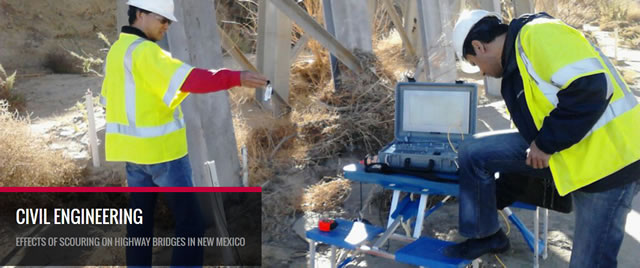
Civil Engineering ETDs
Publication Date
Summer 7-27-2021
Abstract
Concrete serves in all forms of humidity conditions (arid climates to submerged conditions) and can be exposed to many different forms of degradation. To better understand the effects that degradation and humidity have on concrete as a composite, the effects on cement alone must first be better understood. This research aims to examine the significance of degradation (calcium leaching or sulfate attack), in addition to relative humidity, on cracking and fracture behavior of cement. Flexure and fracture tests were performed on cement exposed to varying periods of each form of degradation as well as various humidities. Samples were exposed to degradation for varying periods of time (1-week, 12-weeks and 24- weeks) before being exposed to humidity and tested. Testing was performed after overnight exposure to relative humidities of 16%RH, 50%RH, and 99%RH. The experimental observations shed light on the significance of the interaction of degradation and humidity on cracking and fracture behavior of cement.
Keywords
cement fracture, cement degradation, calcium leaching, sulfate attack
Document Type
Thesis
Language
English
Degree Name
Civil Engineering
Level of Degree
Masters
Department Name
Civil Engineering
First Committee Member (Chair)
Dr. Mahmoud Taha
Second Committee Member
Dr. John Stormont
Third Committee Member
Dr. Jessica Rimsza
Recommended Citation
Raby, Patience L.. "Effect of Degradation Environment and Relative Humidity on Fracture of Cement." (2021). https://digitalrepository.unm.edu/ce_etds/288
